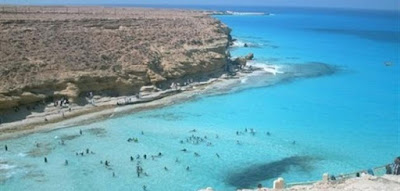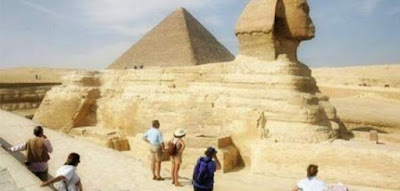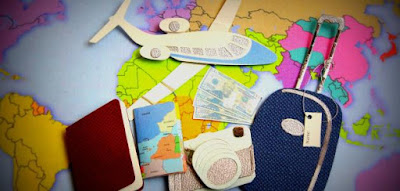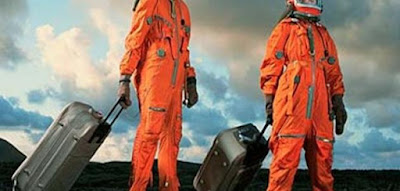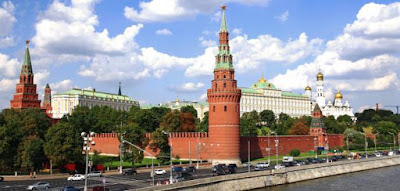L’économie tunisienne continue de souffrir. Après une croissance de seulement 0,8% en 2015, les perspectives de redressement sont faibles. Le secteur du tourisme peine à se remettre des attentats survenus en 2015, l’activité manufacturière est à l’arrêt et le secteur agricole se contracte.
En plus des menaces sécuritaires et de l’agitation sociale, les investisseurs souffrent d’un manque de visibilité. Les tensions politiques se sont multipliées alors que l’économie a plus que jamais besoin de réformes pour être redynamisée. En outre, les fragilités macro-économiques s’accumulent malgré le soutien financier de la communauté internationale et le secteur bancaire reste vulnérable.
Atonie de la croissance : des aléas conjoncturels…
L’économie tunisienne se porte mal. Depuis 2011, elle tourne largement au-dessous de son potentiel. L’année 2015 a été particulièrement difficile avec une croissance de 0,8% et les chiffres du premier trimestre 2016 ne laissent guère de place au doute. Le redressement économique sera d’amplitude très modeste.
En effet, la croissance au T1 2016 n’a atteint que 1% en glissement annuel. Si cela marque une amélioration par rapport au point bas touché au T4 2015 (+0,3%), la faiblesse de l’activité économique est quasi-généralisée. Le secteur crucial du tourisme (7% du PIB) est en plein marasme depuis les attentats survenus en 2015. L’activité industrielle, au mieux, stagne dans le secteur exportateur des biens manufacturés, voire se contracte (énergie), et la valeur ajoutée agricole est en train de chuter après une production record en huile d’olive l’année dernière. Seule bonne nouvelle au tableau, l’inflationest désormais fermement installée sous la barre des 4%, contre un pic de presque 6% entre février et avril 2015. Un nouveau relâchement de la politique monétaire n’est donc pas à écarter même si la portée d’une réelle mesure est très incertaine. De fait, malgré la baisse du taux directeur de 50 points de base décidée en octobre 2015, le crédit bancaire au secteur privé est resté atone.
En outre, l’horizon pour les mois à venir est loin d’être dégagé. Troubles sociaux, menaces sécuritaires ou encore regain de fragilité en Europe (75% des exportations tunisiennes) sont autant d’éléments qui vont continuer de peser sur la confiance des investisseurs. Le taux de croissance attendu pour 2016 ne devrait ainsi atteindre que 1.2% avant d’accélérer légèrement à 2% en 2017, sous réserves d’une stabilisation du climat socio-politique.
Dans tous les cas, les performances de l’économie tunisienne seront insuffisantes pour résorber un taux de chômage officiel qui culmine à 15,4%.
… aux problèmes de fond
Le contexte politique n’est pas non plus de nature à rassurer. Dès le départ, l’attelage gouvernemental incluant laïcs et islamistes modérés avait soulevé des interrogations sur sa capacité à mener des réformes. Depuis, la situation s’est compliquée un peu plus avec la scission, début 2016, du parti dominant la coalition, Nidaa Tounes, qui de facto a perdu sa majorité au sein du Parlement.
Face un mécontentement populaire grandissant, le président de la République a donc décidé de lancer une consultation dans la perspective de forme un gouvernement d’union nationale élargi aux centrales syndicales. A ce stade, il est difficile de dire si l’initiative va aboutir et combien de temps vont durer les négociations tant les relations entre les partis sont complexes. Mais le scénario de voir le gouvernement actuel chuter avant la fin de cette année devient plus probable.
Pendant ce temps, l’économie tunisienne poursuit son décrochage. Le taux d’investissement est passé sous la barre des 20% en 2015, en baisse de cinq points par rapport à 2010. Le secteur manufacturier perd tendanciellement des parts de marché sur le continent européen au profit notamment du Maroc qui reçoit par ailleurs un volume d’investissements directs étrangers désormais trois fois supérieur à celui de la Tunisie, alors qu’il était encore au même niveau il y a cinq ans. Un autre phénomène inquiète. Selon une étude récente menée conjointement par le centre de recherches et d’études sociale de la Banque africaine de développement (BAD), l’emploi informel au sein de l’économie tunisienne représentait 32% de la population active occupée en 2015, contre 28% en 2010. Tout cela est venu se greffer à des fragilités structurelles déjà à l’œuvre avant l’éclatement du soulèvement populaire de 2011. Redynamiser l’économie tunisienne nécessitera donc plus qu’un choc de confiance et passera par des mesures de fond dont la plupart se trouvent en bonne place dans le nouveau programme d’aide de deux ans du FMI, approuvé fin mai pour un montant de 2.9 mds de dollars. Néanmoins, quel que soit le gouvernement qui devra mener à bien ces réformes, l’équilibre sera délicat à trouver en raison de la fragilité du contexte social et en l’absence de véritables marges de manœuvre financières.
Etant donné le peu d’améliorations en vue, le déficit de la balance des paiements courants restera substantiel, autour des 8% du PIB en 2016/17.
Le bouclage des comptes externes va donc continuer de reposer sur le soutien financier de la communauté internationale. Seulement un quart du déficit courant a été en effet couvert par des investissements directs étrangers depuis trois ans. La probabilité de voir la tendance s’inverser est faible à court terme. Or, si en apparence la situation est gérable– les réserves de change couvrent quatre mois d’importations de biens et services– l’économie tunisienne ne dispose pas de matelas financier suffisamment large pour se prémunir contre une dégradation brutale de sa position extérieure. Dans ce contexte, la capacité des autorités monétaires à maintenir l’ancrage du dinar sur un panier de monnaies se pose de plus de plus alors que le FMI estime que le taux de change effectif réel est surévalué de six à 13%. L’absence de rééquilibrage des comptes externes pourrait également remettre en question la soutenablité de l’endettement en devises à moyen terme, même si le risque continue à ce stade grâce à un profil de dette favorable.

